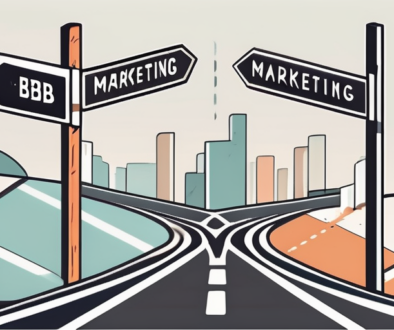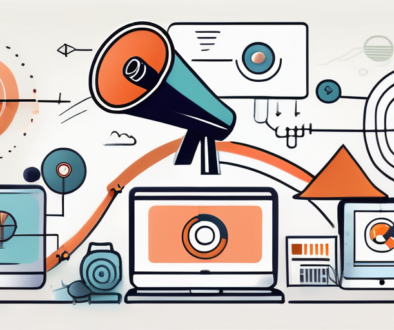B2B Event Marketing Strategies that Work
B2B event marketing is a powerful tool that can help businesses connect with their target audience, generate leads, and build brand awareness. In this comprehensive guide, we will dive deep into the world of B2B event marketing, exploring its definition, importance, and key elements for success. We will also discuss how to craft a compelling event marketing message, promote your event using various channels, and measure the success of your strategy through key performance indicators (KPIs) and data analysis. Let’s get started!
Understanding B2B Event Marketing
B2B event marketing can be defined as the strategic planning and execution of events to promote products, services, and brand identity to a business’s target audience. Unlike B2C events, which primarily focus on consumers, B2B events cater specifically to other businesses and professionals. These events can take various forms, such as conferences, trade shows, seminars, webinars, workshops, and product launches.
B2B event marketing is crucial because it provides a unique opportunity for businesses to engage with their target audience on a personal level. It allows for face-to-face interactions, networking, and knowledge sharing, which can significantly impact the buying decisions of potential customers.
Defining B2B Event Marketing
Before diving into the strategies and tactics of B2B event marketing, it’s important to have a clear understanding of what exactly it entails. B2B event marketing involves meticulous planning, organizing, and executing events that are tailored to the needs and preferences of businesses and professionals.
The Importance of B2B Event Marketing
B2B event marketing plays a crucial role in a business’s overall marketing strategy. It helps businesses establish credibility, showcase their expertise, and build relationships with potential customers. Here are a few key reasons why B2B event marketing should be an integral part of your marketing plan:
- Lead Generation: B2B events offer a unique platform for businesses to generate high-quality leads. By attracting professionals who are interested in your products or services, you can gather valuable contact information and nurture these leads into customers.
- Brand Awareness: Hosting or participating in B2B events allows you to increase brand exposure and visibility within your target industry. By effectively promoting your brand during events, you can position yourself as a thought leader and gain recognition among your peers.
- Relationship Building: B2B events provide a valuable opportunity to network and build relationships with potential business partners, industry experts, and customers. Building strong relationships can lead to collaborations, partnerships, and increased trust in your brand.
Furthermore, B2B events offer an ideal platform for businesses to showcase their latest products and services. By organizing product launches or demonstrations at these events, companies can create a buzz and generate excitement among attendees. This can lead to increased interest, inquiries, and ultimately, sales.
Additionally, B2B events often feature keynote speakers and industry experts who share valuable insights and knowledge. Attending these events allows businesses to stay updated with the latest trends, technologies, and best practices in their industry. This knowledge can be leveraged to improve products, services, and overall business strategies.
Moreover, B2B event marketing allows businesses to gather valuable feedback and insights directly from their target audience. By engaging in conversations, conducting surveys, and hosting interactive sessions, companies can gain a deeper understanding of their customers’ pain points, preferences, and needs. This information can then be used to refine marketing strategies, develop new products, and enhance customer experiences.
Key Elements of a Successful B2B Event Marketing Strategy
Now that we have a solid understanding of what B2B event marketing is and why it is important, let’s explore the key elements that contribute to a successful strategy.
When diving into the realm of B2B event marketing, it’s crucial to understand that success lies in the details. Beyond just hosting an event, it’s about creating an experience that resonates with your target audience and leaves a lasting impression. This involves meticulous planning and execution, starting with identifying your target audience.
Identifying Your Target Audience
The first step in creating a successful B2B event marketing strategy is to clearly define and identify your target audience. Understanding who you want to attract to your event will help you tailor your messaging, content, and event format to their specific needs and interests.
Delving deep into the demographics, preferences, and pain points of your target audience can provide valuable insights that shape every aspect of your event, from the choice of speakers to the topics covered. By aligning your event with the interests of your audience, you can create a more engaging and relevant experience that drives meaningful connections.
Setting Clear Objectives
Once you have identified your target audience, it is essential to set clear objectives for your event. What do you hope to achieve? Are you looking to generate leads, increase brand awareness, foster relationships, or all of the above? Clearly defining your objectives will guide your decision-making process and help you measure the success of your event.
Setting SMART (Specific, Measurable, Achievable, Relevant, Time-bound) goals can provide a roadmap for your event marketing strategy, ensuring that every effort contributes to your overarching objectives. Whether it’s tracking the number of qualified leads generated or monitoring social media engagement, having clear metrics in place allows you to evaluate the effectiveness of your event and make data-driven decisions for future initiatives.
Choosing the Right Event Format
There are various event formats to choose from, each with its own advantages and considerations. Whether you opt for a conference, trade show, webinar, or workshop, it is crucial to select a format that aligns with your objectives and appeals to your target audience. Consider factors such as budget, resources, and logistics when making this decision.
Each event format offers unique opportunities for engagement and interaction. For instance, a conference may provide a platform for thought leadership and in-depth discussions, while a trade show offers networking opportunities and product showcases. By understanding the strengths of each format and how they align with your goals, you can create a compelling event that resonates with your audience and delivers tangible results.
Crafting Your Event Marketing Message
Once you have established the foundation of your event marketing strategy, it’s time to focus on crafting a compelling event marketing message that resonates with your target audience. This crucial step will set the tone for your event and determine how effectively you can attract attendees.
When developing your event marketing message, consider the tone, language, and visuals that will best communicate your event’s unique value proposition. Every word and image should work together to create a cohesive and impactful message that captures the essence of your event.
Developing a Compelling Value Proposition
A strong value proposition is the core of your event marketing message. It explains why attendees should choose your event over others. Make sure to clearly communicate the benefits, unique selling points, and value that participants will gain from attending your event. Your value proposition should be concise, compelling, and tailored to your target audience’s needs and preferences.
Consider conducting market research or surveys to better understand what motivates your target audience and how your event can meet their expectations. Use this insight to fine-tune your value proposition and make it more appealing and relevant to potential attendees.
Creating Engaging Event Content
In addition to a compelling value proposition, your event marketing message should highlight the content that attendees can expect. Create a diverse and engaging program that offers educational sessions, thought-provoking discussions, and networking opportunities. Craft your content to address the pain points and challenges faced by your target audience.
When designing your event content, think about the overall experience you want to create for attendees. Consider incorporating interactive elements, such as workshops, live demonstrations, or Q&A sessions, to keep participants engaged and excited about the event. By offering a mix of informative and interactive sessions, you can cater to different learning styles and preferences within your target audience.
Promoting Your B2B Event
Once you have crafted your event marketing message, it’s time to promote your B2B event to ensure maximum attendance and participation. The success of your event hinges on effective promotion strategies that reach your target audience and entice them to participate in your event.
When promoting your B2B event, it is essential to create a comprehensive marketing plan that leverages both digital and traditional marketing channels. By combining the strengths of various promotional methods, you can increase your event’s visibility and attract a diverse range of attendees.
Leveraging Digital Marketing Channels
Utilize various digital marketing channels to promote your event effectively. This includes leveraging social media platforms, email marketing, content marketing, search engine optimization (SEO), and online advertising. Tailor your messaging to each platform and use engaging visuals to capture attention. Social media platforms such as LinkedIn, Twitter, and Facebook can help you reach a wide audience of B2B professionals. Email marketing allows you to directly communicate with potential attendees and provide them with valuable information about your event. Content marketing through blog posts, videos, and infographics can showcase the value of attending your event, while SEO and online advertising can boost your event’s visibility in search engine results.
Engaging with your audience on digital platforms is crucial for building excitement and driving registrations. Encourage attendees to share your event on their social media channels, create interactive polls or contests to increase engagement, and provide sneak peeks or behind-the-scenes looks to generate interest.
Utilizing Traditional Marketing Methods
While digital marketing channels are effective, do not overlook the power of traditional marketing methods. Print advertisements in industry publications or local newspapers can help you reach a targeted audience. Direct mail campaigns can provide a personal touch and stand out in a digital world. Collaborating with industry partners or complementary businesses can expand your reach and attract attendees who may not have been aware of your event.
By incorporating traditional marketing methods into your promotion strategy, you can create a multi-faceted approach that resonates with different segments of your target audience. Remember to track the effectiveness of each marketing channel to optimize your promotional efforts and ensure a successful B2B event.
Measuring the Success of Your B2B Event Marketing Strategy
Measuring the success of your B2B event marketing strategy is essential to understand the effectiveness of your efforts and make informed decisions for future events. Evaluating the impact of your event marketing initiatives can provide valuable insights that can shape the direction of your marketing campaigns and help you achieve your business goals.
One crucial aspect of measuring success is setting clear and specific goals for your B2B event. Whether your objective is to increase brand awareness, generate leads, or drive sales, having well-defined goals will make it easier to track and evaluate the outcomes of your event marketing efforts.
Key Performance Indicators (KPIs) for Event Marketing
Identify and track key performance indicators (KPIs) relevant to your objectives. This could include metrics such as registration numbers, attendee satisfaction, lead generation, social media engagement, revenue generated, and overall return on investment (ROI). By monitoring these KPIs, you can gain a comprehensive understanding of the impact of your event and make data-driven decisions to optimize future marketing strategies.
Furthermore, segmenting your KPIs based on different stages of the event, such as pre-event, during the event, and post-event, can provide a more nuanced view of your performance and help you identify specific areas that require attention or improvement.
Analyzing and Interpreting Data
Collect and analyze data from various sources, including registration platforms, surveys, social media analytics, and post-event feedback. This multifaceted approach to data collection will enable you to gain a holistic view of your event’s performance and audience engagement. By delving deep into the data, you can uncover valuable insights, trends, and patterns that can inform your strategic decisions and enhance the effectiveness of your future event marketing endeavors.
Remember, successful B2B event marketing goes beyond just hosting an event; it involves a comprehensive strategy that encompasses planning, execution, and evaluation. By continuously refining your approach based on data-driven insights and best practices, you can ensure that your B2B events deliver maximum value and contribute to the overall success of your marketing efforts.



